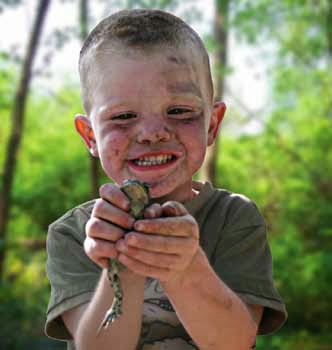 |
| Swan Lake National Wildlife Refuge, Missouri |
I'm here to tell you there are more reasons then just scientific interests for why YOU should care about wetlands and should be celebrating World Wetlands Day today!
From vernal wetlands who only have water a few weeks a year, to coastal wetlands which gain and lose their water every day with the tides, wetlands come in many shapes and sizes. Each wetland is the result of a specific set of environmental conditions, rain, ground water, soil, topography. But no matter what caused the wetland, they are all important to all of us.
This might seem like a broad generalization but it's true! Wetlands clean our water, protected us from floods, and provide habitat for wildlife including many different species which are commercially harvested and eaten round the world. They are also vital habitat for the wildlife we don't eat, including 1/3 of the threatened and endangered species in the U.S. [1].
 |
| B.K. Leach Conservation Area, Missouri |
You might not think about wetlands as a resource for anyone other then wildlife but wetlands protect us and our food every day!
Three-quarters of the northern Gulf of Mexico's fish and other aquatic life depend on Louisiana's wetlands for survival [2]. While many of these species spend their adult lives in the gulf, they rely on wetlands as habitat for breeding and protecting their young.
New York City found it could avoid spending $3-8 billion on a new water water treatment plant by investing $1.5 billion in the purchase of land around reservoirs in Upstate New York. These wetlands purify the water supply FOR FREE [3]. These wetlands also provide great wildlife habitat and recreational opportunities, so it's a great win-win situation for the city of New York and its wetlands.
A U. S study of the role of coastal wetlands in reducing the impacts from hurricanes found they provided storm protection services with an estimated value of $23.3 billion per year. [3] This is HUGE! While flooding is a part of the natural cycle the kinds of floods we often hear about aren't natural ones. Before we had lost so many of our wetlands they would have absorbed these large rain events and gradually released the water, helping to keep our rivers flowing year round.
Wetland Loss
We've lost over 53% of our wetlands in the U.S in the past 300 years and approximately 26% of our wetlands globally (most of those losses being in North American and Europe) [4, 5]. Much of this loss is due to draining for agriculture purposes and conversion into other kinds of human development. Wetland loss is a BIG problem, when wetlands are destroyed they can't serve their ecological roles. They can't absorb flood water or clean it, they can't be habitat for wildlife species, and often what replaces them almost works as an anti-wetland. Parking lots are designed to shed rain as quickly as possible, taking runoff and sediment along with them. Excessive runoff clogs up waterways with rain faster than they are built to handle, which can cause big problems for both the environment and people. These reasons and many more are why it is SO important to protect the wetlands that are still around and make sure that they are as healthy as possible. We don't have that many left so we need them to work overtime.
Ways YOU can help wetlands
 |
| Wetlands are awesome! (USFWS Pacific) |
-Support local organizations who work to protect wetlands (Land trusts, state and federal agencies, county and city parks and other groups).
-Support legislation to protect wetlands.
-Volunteer and help restore and protect wetlands in your community!
-Recycle and help pick up letter so it doesn't end up in wetlands.
-Most of all, Go out and enjoy wetlands!
Wetlands are a treasure trove just waiting to be explored.
There is something to do every time of the year, whether you have 10 minutes or an entire afternoon new things can be found and explored in your local wetlands. Here's a few seasonal suggestions.
- Go out in the spring and look for the wildflowers and birds, stop by in the evening and listen for the frogs.
- Adventure out in the summer, look for snakes sunning themselves, birds feeding their young.
- Return in the autumn to see the beautiful colors and migrating birds.
- Visit again in the winter to see the beautiful patterns in the ice and to check for any winter visitors.
Needs some help getting started exploring your local wetlands? Check out these great resources.
Murky and Quirky - Appalachian Mountain Club
Wetland Scavenger Hunt - Wisconsin DNR
Walnut Creek - A guide to exploring urban wetlands.
__________________________________________________________________________
[1] http://water.epa.gov/type/wetlands/fish.cfm
[2] http://shreveporttimes.gannettonline.com/gns/wetlands/
[3] http://wwf.panda.org/about_our_earth/about_freshwater/intro/value/
[4] http://www.npwrc.usgs.gov/resource/wetlands/wetloss/findings.htm
[5] http://www.ramsar.org/cda/en/ramsar-news-archives-2002--a-global-overview-of/main/ramsar/1-26-45-87%5E16905_4000_0
No comments:
Post a Comment